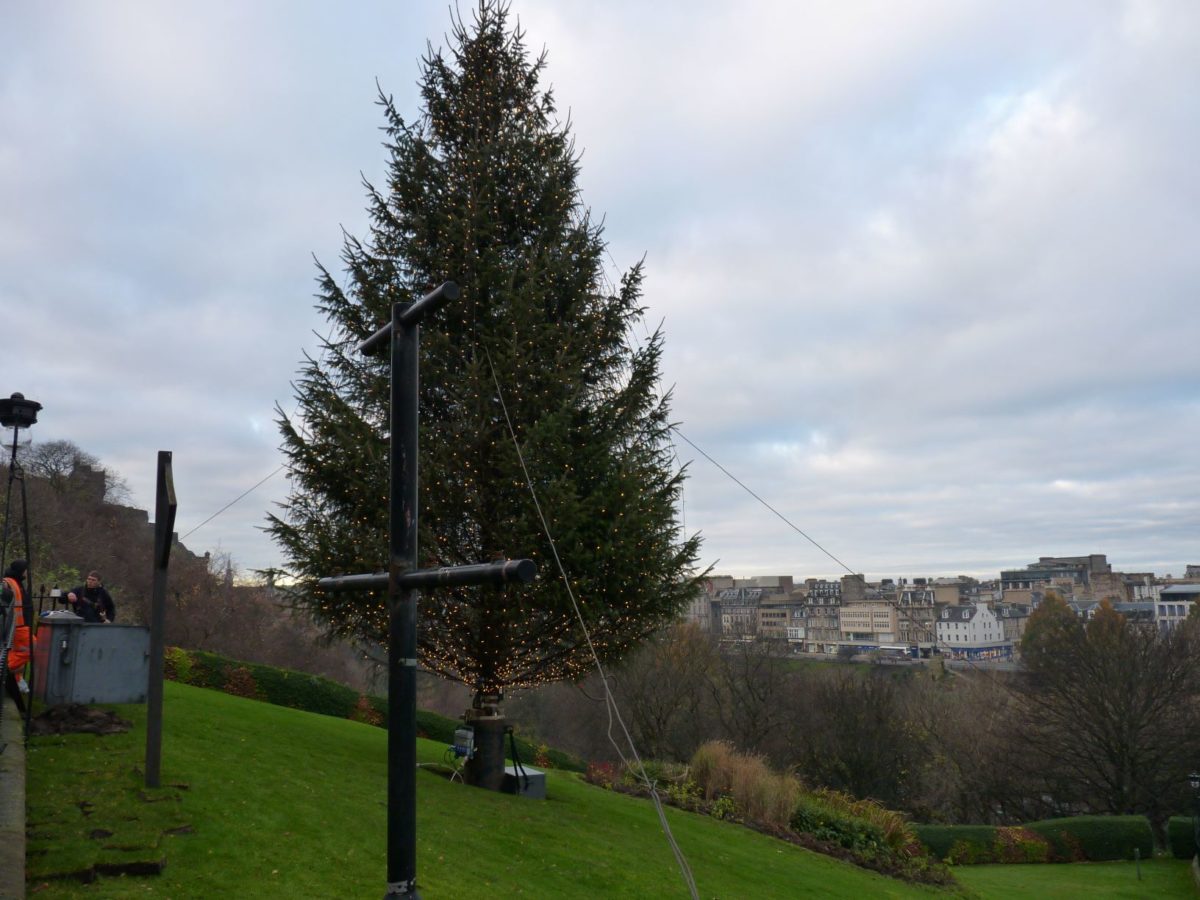Letter from Scotland
Scotland has joined the “four nations” bubble for Christmas.
To avoid confusion and to recognise the ties that still bind the peoples of Britain together, the rules over what we can and cannot do over the five days of Christmas will be the same in Scotland as they are in England, Wales and Northern Ireland. We can travel and meet indoors with two other households – though the definition of “households” is slightly stricter in Scotland.
“But just because you can meet up, doesn’t mean you should or you have to,” our First Minister was warned us. Nicola Sturgeon obviously prefers us to spend Christmas alone and at home. And crucially, there is to be no amnesty for Hogmanay, that remains cancelled. Touchingly, she’s revealed she will not be visiting her own parents.

This is because the incidence of Covid-19 remains high, over 1200 cases a day, over a thousand people in hospital and deaths running at 40-50 a day. The total now recorded by National Records of Scotland stands at 5,380. And this is despite the fact that half the country – the west and centre – is still in Level 4 lockdown.
Meanwhile, the economy is going to wreck and ruin. The Chancellor, Rishi Sunak, has told us UK unemployment is set rise to 2.6 million or 7 per cent next year and the country as a whole is 11 per cent worse off, the sharpest downturn for 300 years. And he didn’t dare mention Brexit. He did however announce further government spending, which will mean another £2.4bn for the Scottish Government.
About the only cut he proposed was in overseas aid, which if the UK parliament allows him to get away with it, will break our international obligation to spend 0.7 per cent of our national income on aid, or £15bn. Mr Sunak wants to cut this by a third which has drawn widespread criticism, not least from Ruth Davidson, leader of the Scottish Conservatives at Holyrood, who called it “counter-productive, morally, economically and politically.”
Which is perhaps why she wanted to change the subject at First Minister’s Questions. She decided to take a tilt at the halo on Nicola Sturgeon’s head by asking why she continues to defy two votes in parliament for her to disclose the legal advice the government was getting before it embarked on an expensive court case against the former First Minister Alex Salmond. It’s an unseemly and tangled tale which you’d need to attend a series of webinars to understand.
It’s an example of the surreal bubble politicians get themselves into when the rest of the world is struggling against a real and present danger. Richard Leonard, the Labour leader, has become similarly obsessed with the dated issue of elderly patients being transferred out of hospitals into nursing homes without being tested for Covid-19. Yes, it happened, Nicola Sturgeon told him, but for good reasons and it hardly ever happens now. She was at pains to explain the exceptional clinical reasons for this.
In another distraction from our present troubles, yet another appeal has been heard in the Scottish courts in the case of Abdelbaset al-Megrahi, the only man convicted of the 1988 Lockerbie bombing. He’s been dead for over eight years, but his family’s lawyers are arguing that there’s still doubt over whether he was the man who bought the clothes, found inside the suitcase that contained the bomb, and whether he was the one who planted it on the plane. The five judges are now considering whether the case should be reopened.
I once had the privilege of interviewing one of Scotland’s greatest mountaineers, Hamish MacInnes at his home in Glencoe. He died this week at the age of 90. He was modest about his achievements, but he had a hard, determined eye. He had climbed the Matterhorn by the age of 16. In 1953 he arrived at base camp on Mt Everest only to meet Edmund Hillary on his way down. He went on to climb all over the world, not forgetting first assents in Glencoe and on Ben Nevis and the first winter traverse of the Cuillin ridge. He helped establish the Glencoe Mountain Rescue team in 1961 and led it for 30 years, saving many lives and writing many books on mountain rescue. He invented the light-weight MacInnes stretcher still in use today. He was also a skilled film-maker, helping to shoot climbing scenes in The Eiger Sanction, The Mission and Monty Python and the Holy Grail. He’s a wonderful example of that adventurous post-war generation of Scots, self-taught and self-motivated.
Finally, as winter rolls in, I see that a craze has begun to give some of our 230 snowplough and gritting lorries entertaining names. So far, competitions in schools and on radio stations have come up with “Gritty, gritty, bang, bang” and “For Your Ice Only ”. My own entry would be “The Covid Crusher.”